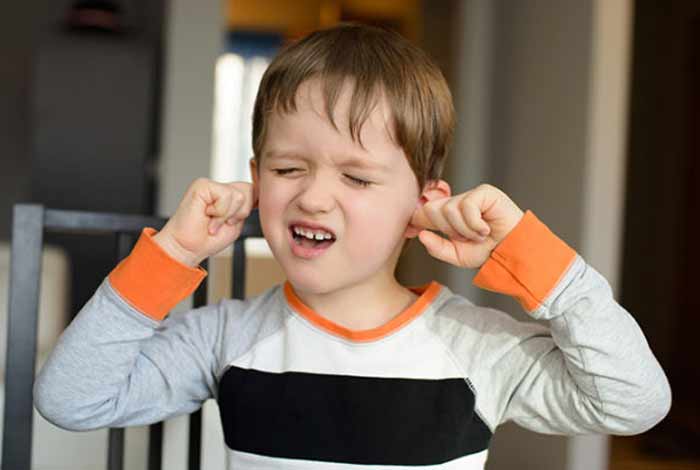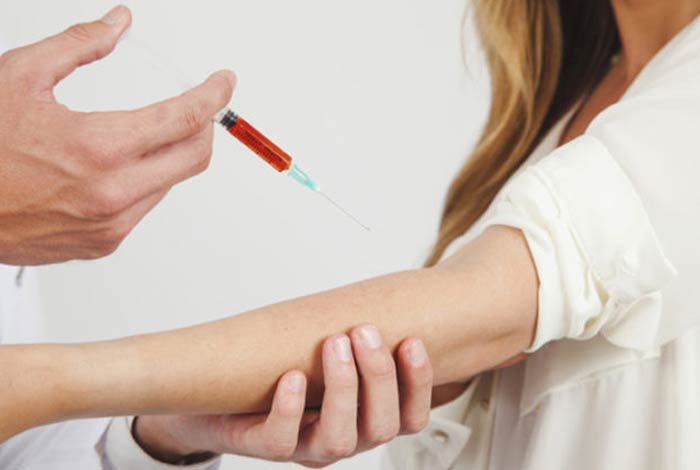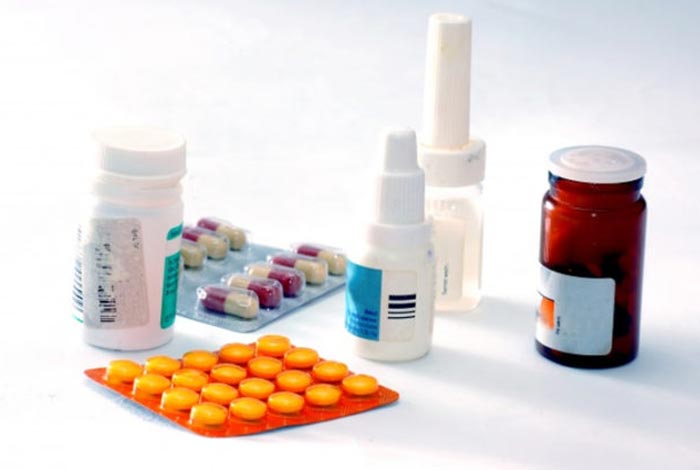
Overview and Facts:
Tourette syndrome is a neurological condition, characterized by sudden movements or sounds (tics) that cannot be controlled. Tics are repeated and involuntary vocalizations or movements. The cause of tics is not yet known. A person with this syndrome might repeatedly shrug his shoulders, blink his eyes or blurt offensive words.
Tourette syndrome is one of the three types of tic disorders – a collective reference to a group of neurodevelopmental and childhood-onset conditions. Besides Tourette syndrome, the other two types are provisional tic disorder and chronic tic disorder. All the three tic disorders are differentiated by the length of time tics persist and the types of tics, viz., vocal, motor or both.
The Tourette syndrome usually starts between 2 and 15 years of age. The average age of developing this syndrome is around 6 years. This neurological condition affects people from all ethnic groups and races. However, males are around four times more prone to develop this condition than females.
Sadly, there is no known cure for Tourette syndrome, but treatment helps relieve its symptoms. Most people with Tourette syndrome do not need medications if the symptoms are mild. The tics often reduce or even disappear after teenage or in early adulthood. Tourette syndrome is named after a French doctor and neurologist, Georges Gilles de la Tourette, who was the first to discover this syndrome in 1885.
Generally, Tourette syndrome runs in families and can co-occur with attention deficit hyperactivity disorder (ADHD), obsessive-compulsive disorder (OCD), sleep disorders, behavioral issues, anxiety, depression or panic disorder. It has been estimated that around 200,000 Americans suffer from severe symptoms of Tourette syndrome, out of which, nearly 2000, including children, experience milder symptoms like chronic vocal or motor tics.
Symptoms of Tourette Syndrome
Tics are sudden, repeated and brief sounds or movements that cannot be controlled. These can range from mild to severe. If a child is suffering from tics, it might or might not be a case of Tourette syndrome. The transient tics vanish within a few months, but if the tics persist for over a year, then it might be Tourette syndrome. For the tics to be classified as Tourette syndrome, they must include at least one vocal tic.
Tics can be classified as below:
- Simple Tics: These are brief, repetitive and sudden tics that only involve few muscle groups.
- Complex Tics: These are coordinated and distinct movement patterns involving several muscle groups.
The tics can also involve sound (vocal tics) or movements (motor tics). Generally, the motor tics begin before the vocal tics. There are various types of tics that people experience.
Several common motor tics observed during Tourette syndrome are as follows:
| Examples of Simple Tics | Examples of Complex Tics |
| Jerking the head | Shaking the head |
| Blinking eyes | Kicking or hitting objects |
| Nose twitching | Shaking |
| Teeth grinding | Jumping |
| Neck twisting | Copying others’ movements or echopraxia |
| Eye rolling | Making obscene gestures or copropraxia |
Several common vocal tics observed during Tourette syndrome are:
| Examples of Simple Tics | Examples of Complex Tics |
| Grunting or Barking | Repeating others’ phrases (echolalia) |
| Coughing | Repeating the same phase again and again (palilalia) |
| Clearing the throat | Swearing or shouting inappropriate words (coprolalia) |
Most people suffering from Tourette syndrome have unusual or uncomfortable feelings before the tics. The person might feel tingle, tension or an itch, known as premonitory sensations. Expressing tics relieve these sensations.
The tics may also vary in terms of severity, type and frequency. They might worsen during anxiety, stress or depression. Tics might change over time and can also occur while sleeping. These begin in childhood and usually improve as a person enters adulthood. With great determination and persistent efforts, a few people are able to effectively control their tics.

Risk factors of Tourette Syndrome
The main risk factors of Tourette syndrome are:
- Family History (Genes): Having a close family member with Tourette syndrome or any other tic disorder increases the chances of a person to develop Tourette syndrome. These disorders run in families. The symptoms, however, differ between both the persons.
- Gender: Males are almost four times at a higher risk of developing Tourette syndrome than females.
A few studies indicate several other risk factors of Tourette syndrome, but further research is required to confirm their consistency. These include:
- Complications during pregnancy
- Smoking during pregnancy
- Low birth weight of a baby
- Certain infections in children

Do I have Tourette syndrome?
If your child has:
- had several tics with at least one vocal tic
- tics that occur several times a day and about every single day
- been experiencing tics for several months
- started having tics before age of 18
Tourette Syndrome
then he/she might have Tourette syndrome. These can be transient tics that generally disappear in a few months. Possibilities are there that some other conditions like allergies, depression, attention deficit hyperactivity disorder (ADHD), vision problems, dystonia and autism spectrum disorder could be responsible for the tics.
If the child is showing unusual behavior, it is important to get him/her properly diagnosed to find out the root cause. The proper diagnosis can be made only by a medical expert, i.e., a psychiatrist, clinical psychologist or neurologist. These experts might conduct several tests to confirm Tourette syndrome. Generally, tics must persistently occur for around a year to be classified as Tourette syndrome.

Causes and Prevention of Tourette syndrome
Causes of Tourette syndrome:
The exact cause(s) of Tourette syndrome is not yet known. It is though believed to be caused by a combination of various genetic, neurological and environmental factors.
Abnormalities in certain regions of the brain, such as cortex, basal ganglia, frontal lobes and the circuits that interconnect these regions might be responsible for Tourette syndrome. Basal ganglia in the brain are majorly involved in controlling the body’s motor movements. Certain structural differences and abnormalities have been observed in basal ganglia of people with Tourette syndrome. Chemicals that transmit never impulses, known as neurotransmitters are also believed to play a role in the development of this condition. These neurotransmitters include serotonin, dopamine and norepinephrine.
It has also been speculated that Tourette syndrome is inherited, but the genes responsible for this syndrome are still not identified. A genetic mutation might disrupt normal development of the brain and Tourette’s symptoms may surface. Childhood infections by streptococcal bacteria are also linked with the development of Tourette syndrome.
Prevention of Tourette Syndrome:
There are no preventive measures for Tourette’s syndrome. It cannot be prevented as the exact causes of Tourette’s are still not known.

Diagnosis and Tests for Tourette Syndrome
Diagnosis of Tourette Syndrome:
In general, there is no specific test to diagnose Tourette syndrome. The diagnosis is usually based upon history of symptoms and signs.
The criteria for its diagnosis include:
- Presence of both motor and vocal tics; not necessarily at the same time
- Occurrence of tics almost daily for a period of more than a year
- Appearance of tics before the age of 18
- Non-involvement of any other condition(s), substances or medications in the development of tics
If the above criteria are met, the person is said to be suffering from Tourette’s syndrome. However, the symptoms might also be associated with other conditions. Coughing and sniffing can be due to some allergies. Some vision problem could be responsible for blinking of eyes more than usual.
With appropriate diagnosis, other conditions that have similar tic-like characteristics can also be ruled out. These conditions include dystonia and autistic spectrum disorder. For this, the doctor might conduct blood tests and brain imaging tests:
- Blood Tests: These tests are conducted to rule out the possibility of any allergy that might be triggering the symptoms similar to those of Tourette syndrome.
- Brain Imaging Techniques: Brain scan techniques like magnetic resonance imaging (MRI) and computed tomography (CT) scan can help in ruling out any structural abnormalities in the brain. These techniques can also find out if there is any neurological issue behind the tics.
- Most children with Tourette syndrome do not require a brain scan.

Treatment and Care for Tourette’s Syndrome
Treatment for Tourette’s Syndrome:
The treatment of Tourette syndrome might include medications, behavioral therapies and in rare cases, surgery. The treatment options are described below:
1. Medications: The medications that help control or reduce symptoms associated with Tourette syndrome are:
- Medications that Reduce or Block Dopamine: Pimozide, fluphenazine and haloperidol can help control tics. However, these medications may lead to involuntary repetitive movements and weight gain. Tetrabenazine might be prescribed, but it may cause severe depression.
- Botulinum Injections: Botulinum toxin A injections into the affected muscle might relieve vocal or simple tics.
- ADHD Medications: Medications for ADHD like dextroamphetamine and methylphenidate help improve concentration and increase attention span. However, in some cases, tics might even get worse due to ADHD medications.
- Central Adrenergic Inhibitors: Medications prescribed for high blood pressure, such as guanfacine and clonidine help control certain behavioral symptoms like rage attacks and impulse control problems. A common side effect of these medicines is sleepiness.
- Anti-Depressants: Common anti-depressants like fluoxetine might help control certain symptoms of depression, anxiety and obsessive compulsive disorder in people with Tourette syndrome.
- Anti-Seizure Medications: Recent studies reveal that topiramate), used to cure epilepsy, is also effective in some people suffering from Tourette syndrome.
2. Therapies: A doctor might recommend psychotherapy and behavioral therapies for treating Tourette syndrome. This involves counseling with a licensed mental health practitioner. Comprehensive Behavioral Intervention for Tics (CBIT) is a new, evidence-based behavioral therapy, which includes habit reversal training as well as exposure and response prevention (ERP) training.
This therapy exposes a person to their urges and help them suppress their responses; thereby, allowing a patient to have more control over his/her urges. The person is taught to perform some other physical responses that can counter the urge. For example, for an urge of blinking the eyes, the person might purposely pat the left leg and avoid blinking the eyes. These therapies also help relieve the symptoms of anxiety, OCD and ADHD. Several other techniques that are used in therapy sessions are:
- Relaxation techniques
- Deep-breathing techniques
- Hypnosis
- Guided meditations
3. Surgery or Deep-Brain Stimulation (DBS): Surgery for Tourette syndrome has now largely been replaced with deep brain stimulation. This technique is used to treat extremely severe cases of Tourette syndrome, wherein all other treatments have failed.
DBS involves permanent implantation of small electrodes (metallic discs) in certain parts of the brain that are associated with Tourette syndrome. These electrodes are then attached to generators that are implanted in some other part of the body. The generators continuously send electronic pulses to the electrodes. This helps stimulate different parts of the brain. which eventually help control or reduce the symptoms of Tourette syndrome.

Care for People with Tourette Syndrome:
The following measures must be adopted by the caregiver of people with Tourette syndrome:
- The parents of the child with Tourette syndrome must educate everyone, who interacts with their child regularly. This may include their class teachers, bus driver and friends. Ask them to give extra time to the children for completing tests and assignments.
- The parents must nurture their child’s self-esteem suffering from Tourette syndrome.
- Reach out for help and support from others who have someone in their families suffering with this syndrome.
- Seek out a local support group for Tourette syndrome to help a patient in coping up with the symptoms.
- Learn as much as possible about Tourette syndrome to understand the condition better. This would help you take better care of the patient.
- Allow the patient to take a sleep of at least 7-9 hours a day as this might help manage tics.
- Teachers and school administration must take care of the child suffering from Tourette syndrome and should make sure that they are not bullied by others.
- Remove toxins from the home by regular cleaning. The toxins and dust might worsen the tics.
- Maintain a journal and note down the triggers of tics. This would help avoid or prevent the triggers in future.

OTC and Self-Management Methods for Tourette Syndrome
Over-the-Counter (OTC) Medications for Tourette Syndrome:
There are no over-the-counter (OTC) medications to treat Tourette syndrome. Medications for Tourette syndrome are only available on prescription. However, a patient can consume omega-3 fatty acid supplements. These essential fatty acids seem to improve anxiety, irritability and depression in people with Tourette syndrome. Folic acid supplements might also help and can be consumed, but only after consulting a doctor.
Self-Management Methods for Tourette Syndrome:
A person with this syndrome can self-manage his/her condition with the following tips:
- Expressing feelings and happenings of the day to someone in the family will help stay calm.
- Children suffering from Tourette syndrome should confide feelings to a teacher when their parents are not around.
- Socially, connect with other people suffering from Tourette syndrome. This would help in building self-esteem.
- Use Tourette action support groups to get in touch with people and to avoid feeling lonely.
- Educate the child’s teachers and other people who regularly interact with them. This helps child in certain ways.
- Have the medications as prescribed by the doctor.
- A person suffering from Tourette syndrome must practice the techniques taught in behavioral therapy sessions to reduce or lessen the tics.
- Consume an adequate amount of magnesium daily by consuming foods such as fish, yogurt, bananas, leafy greens, beans and whole grains.
- Keeping blood sugar level maintained is important to minimize tics and other symptoms associated with Tourette syndrome. A person with Tourette syndrome must consume small meals every three to four hours.
- Keep yourself apprised of recent research on Tourette syndrome and newly available treatments.
- Avoid certain situations that can possibly increase stress and anxiety.
- People or children suffering from Tourette syndrome must ground themselves in some recreational tasks or activities to reduce the episodes of tics.
- Limit or completely stop the intake of caffeine, sugar, artificial sweeteners and refined foods. Eat organic foods and vegetables.
- Indulge in any kind of physical activity for at least 30 minutes a day to boost mental as well as physical health.
- keep a positive and optimistic approach. Remember that tics might considerably reduce or even disappear in late teenage years or early adulthood.

Natural Ways to Cure Tourette Syndrome
The below-discussed natural remedies can be tried to prevent and manage the symptoms of Tourette syndrome:
- Winter Cherry (Withania somnifera): Ashwagandha or winter cherry is a herb that has anti-stress and anti-depression properties. It helps treat neurological disorders and manage stress. Winter cherry can be consumed in the form of powder daily to reduce weakness and anxiety related to Tourette syndrome.
- Bramhi (Bacopa monneiri): Brahmi is highly effective in improving mental function and memory. This herb when consumed daily in the form of capsules or powder helps relieve stress and improves concentration in the patients of Tourette syndrome.
- Gotu Kola (Centella asiatica): Also known as Asiatic pennywort, gotu kola helps in stress management in patients with Tourette syndrome. This herb also known to prevent exhaustion of nervous system. In the powdered form or capsules, consuming this herb daily helps lower the symptoms of Tourette syndrome.
- Magnesium: Magnesium is known to support the nervous system. Consuming magnesium-rich foods like dark chocolate, bone broth and avocados help manage tics. It also lowers the risk of other co-occurring conditions, such as stress and anxiety disorders.
- Passionflower: People suffering from Tourette syndrome often have sleep problems, anxiety, depression and co-occurring ADHD. Passionflower is effective in managing these conditions. A person might consume it in form of supplements or teas that are easily available.
- Vitamin B12: Consuming vitamin B12 daily helps improve memory and concentration. For this, a person can increase the intake of foods like meat, eggs and milk. It also helps improve cognitive function. Vitamin B12 is also known to significantly reduces stress and anxiety associated with Tourette syndrome.
- Chamomile: Chamomile helps reduce tension and improves sleep. Essential oils, teas and tinctures of chamomile are easily available. It also curbs sleep problems associated with Tourette syndrome.
- Acupuncture: Acupuncture is an ancient Chinese technique that involves inserting fine needles into the skin at special points, known as meridians. This has shown to be beneficial in reducing insomnia, anxiety and stress in Tourette syndrome patients. Certain verbal and motor tics can be reduced or stopped by acupuncture.
- Whole-Body Relaxation: The whole-body relaxation involves pressing and releasing various muscle groups. A person suffering from Tourette syndrome must start this technique from the feet by pressing the muscles until the count of 5 and then, slowly releasing them to the count of 15. Keep moving slowly upwards towards the upper body and repeat the same with other muscles groups.
- Omega 3 Fatty Acids: Foods rich in omega-3 fatty acids have been long known for supporting brain health, heart health and preventing cancer. These foods also help cure sleep disorders. The foods rich in omega-3 fatty acids include white fish, sardines, albacore tuna, wild caught salmon, chia seeds and walnut.

Health Tip by Expert
Since Tourette syndrome is a complex neurological disorder and its symptoms can be difficult to manage, the parents of child suffering from this syndrome must work along with the doctor.
The parents are also advised to educate the child’s teachers and others, who interact daily with the child, about Tourette syndrome. Additionally, the teachers can stay in touch with the doctor to have a regular check on the child’s tics. This will help the child to lead a normal life with least difficulties.





